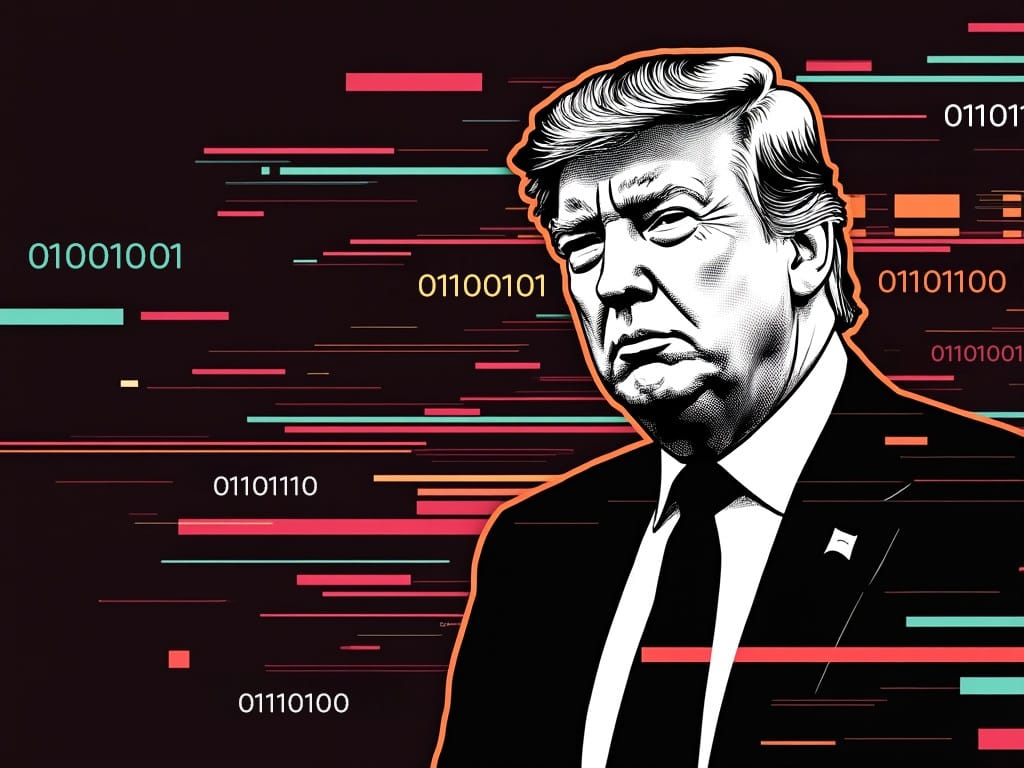How Trump's Presidency Could Fast-Track AI Advancements in America
Trump’s presidency is likely to accelerate AI growth with deregulation, Musk partnerships, and national security focus, reshaping America’s tech dominance.

With Donald Trump back in office, his administration is set to take an aggressive stance on advancing artificial intelligence in America. Trump’s business-friendly, deregulation-driven approach, combined with his interest in strengthening U.S. tech independence, suggests he’ll push hard to make the country a global leader in AI. This focus could reshape America’s competitive edge against international players like China, while rapidly advancing developments in sectors ranging from defense to infrastructure and energy.
This analysis examines how Trump’s policies, potential alliances with key tech figures like Elon Musk, and a focus on high-impact sectors could shift the pace and scale of AI growth in the U.S., leading to a new era of technological power that could have a lasting impact on both American society and the global stage.
Favoring AI and Business Growth
Trump has long maintained that regulation stifles growth. Under his second term, this approach is likely to apply strongly to AI. Past attempts to regulate AI, such as discussions around data privacy, ethical standards, and bias control, may be deprioritized, allowing companies greater flexibility to innovate at speed. For Silicon Valley, this could mean fewer obstacles in testing and deploying new technologies, shortening the development cycle for AI applications in areas like autonomous vehicles, healthcare, and consumer tech.
In defense and national security, Trump’s administration is expected to emphasize AI as a tool for strengthening military capabilities. With fewer restrictions, projects aimed at creating AI-driven defense mechanisms, cybersecurity enhancements, and autonomous surveillance systems could see significant acceleration. Trump’s approach here isn’t about caution; it’s about keeping America’s tech power dominant, an approach that aligns with his “America First” philosophy. His administration will likely prioritize AI funding for projects tied to national security, encouraging private companies to join the effort.
Public-Private Partnerships and Elon Musk's Role
Trump’s close alignment with major business leaders has always been central to his strategy. With figures like Elon Musk leading in sectors ranging from AI to space exploration, the Trump administration is likely to promote public-private alliances that benefit Musk’s companies and, in turn, America’s technological footprint. Musk’s work with AI through ventures like Tesla’s autonomous driving and Neuralink’s brain-computer interfaces might see accelerated regulatory approval and potential government funding, as these align with Trump’s vision for technological leadership.
Such collaborations could transform America’s capabilities in space exploration, transportation, and healthcare. With government incentives or direct funding, Tesla’s AI-driven electric vehicles and SpaceX’s exploration missions could advance rapidly, establishing the U.S. as the leading nation in AI-backed technology. Trump’s hands-off approach could allow Musk and other tech leaders to push boundaries without bureaucratic delays, positioning the U.S. as a pioneering force in the AI-driven tech revolution.
National Security and Military Applications
Under Trump's leadership, there is an anticipated emphasis on leveraging AI for national security purposes. The administration has expressed intentions to enhance military capabilities through AI, focusing on areas such as autonomous defense systems and advanced surveillance technologies. This strategy aligns with the goal of maintaining U.S. superiority in defense and countering technological advancements by adversaries.
While prioritizing AI in defense could strengthen national security, it also necessitates careful consideration of ethical implications and the potential for an arms race in AI technologies. Balancing innovation with responsible use will be crucial to prevent unintended consequences in military applications.
Competing with China: The Global AI Race
China has made significant investments in AI, aiming to become a global leader in the field. Trump's administration is expected to respond with policies designed to outpace China's advancements. This could involve substantial federal funding for AI research, incentives for domestic AI development, and measures to protect intellectual property.
Additionally, the administration may implement trade policies to limit China's access to critical AI technologies, thereby attempting to curb its progress. Such strategies could intensify the technological rivalry between the two nations, impacting global AI collaboration and standards.
Infrastructure and Energy Considerations
The expansion of AI technologies requires robust infrastructure and substantial energy resources. Trump's policies favoring traditional energy sectors, including fossil fuels, could support the energy demands of AI development. However, this approach may conflict with environmental sustainability goals and could face opposition from advocates of renewable energy.
Investments in infrastructure, such as data centers and high-speed internet, will be essential to support AI growth. The administration's focus on deregulation and private sector partnerships may facilitate these developments, but ensuring equitable access and addressing environmental impacts will be important considerations.
Data Privacy and Ethical Implications
A deregulated environment may accelerate AI innovation but could also lead to challenges in data privacy and ethical standards. Without stringent regulations, there is a risk of AI applications infringing on individual privacy or being deployed in ways that raise ethical concerns. The administration will need to balance the drive for rapid AI advancement with the protection of civil liberties and ethical principles.
Conclusion
Trump's presidency is set to significantly influence the trajectory of AI development in the United States. Through deregulation, strengthened public-private partnerships, and a focus on national security, the administration aims to fast-track AI advancements. While this approach may bolster America's position in the global AI race, it also presents challenges related to ethical considerations, data privacy, and environmental sustainability. Navigating these complexities will be crucial to ensure that accelerated AI growth benefits society as a whole.